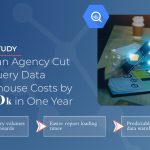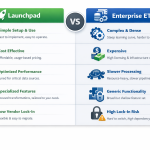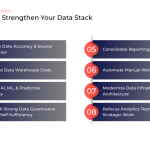
Last week, Google announced their decision to pause the plan to eliminate third-party cookies in Chrome. Instead, they will be introducing a new approach that empowers users to make informed choices regarding their web browsing privacy.
This notable decision, influenced by feedback from various stakeholders including regulators, publishers, and the advertising industry, seeks to strike a balance between consumer privacy and the needs of an ad-supported digital ecosystem.
In this article, we will explore the implications of this decision for advertisers and analysts, and offer our recommendations on how to effectively navigate the evolving landscape of analytics.
How Does the Latest Cookie Update Implicate Marketing Strategy?
1. Extended Use of Third-Party Data: Marketers can continue leveraging third-party cookies, allowing for ongoing precision in targeting and retargeting strategies. This extension buys time to develop robust first-party data strategies, ensuring a smooth transition if or when third-party cookies are eventually deprecated.
2. User Choice and Engagement: Google's current approach emphasizes user choice, allowing users to adjust their privacy settings at any time. This shift encourages marketers to prioritize transparency and build trust with their audience, ultimately enhancing customer relationships.
3. Moving Beyond Last-Touch Attribution: While third-party cookies may remain available for the time being, advertisers should explore more advanced attribution models beyond the last-touch approach. By adapting their strategies to include new and evolving attribution models, as well as utilizing publisher-specific APIs and server-side integrations, businesses can enhance their understanding of customer analytics.
How Does this Affect My Analytics Strategy?
1. Data Continuity: One silver lining of the pause is that the continued use of third-party cookies maintains the integrity of long-term data sets crucial for accurate trend analysis and forecasting.
2. Privacy Sandbox Integration: Early testing of Google's Privacy Sandbox APIs shows promise in balancing privacy and utility. Analysts should begin integrating these tools, preparing for future shifts while enhancing current data strategies.
3. Embracing New Technologies: With the shift towards privacy-preserving alternatives, digital analysts should focus on implementing server-side integrations and publisher-specific APIs. These technologies provide enhanced insights while ensuring compliance with evolving privacy standards.
Find more on server-side integrations in this related article: Navigating the Removal of Third-Party Cookies.
Strategic Recommendations
1. Invest in First-Party Data: Strengthen your first-party data collection and utilization. Encourage user sign-ups, build your email marketing list, and create value-driven content to incentivize data sharing.
2. Embrace Privacy-First Technologies: Prioritize testing Privacy Sandbox initiatives and other privacy-preserving technologies. Understanding any potential and limitations now will help you get ahead of future transitions.
3. Enhance Transparency: Clearly communicate data usage practices and privacy policies to build trust with your audience, ensuring compliance with evolving regulations and fostering customer loyalty.
4. Stay Informed and Adaptive: Stay informed about industry changes and emerging technologies. Regularly updating strategies and providing training for teams to adapt to new tools and methodologies will help improve your overall approach.
What's Next?
Google's updated approach to third-party cookies offers marketers and analysts an opportunity to refine their strategies. By leveraging this extended timeline, businesses can continue implementing effective marketing efforts while adapting to a privacy-centric future.
For expert guidance on navigating these changes and optimizing your strategies, our team is here to help you stay ahead in the evolving digital landscape.






